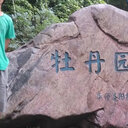Plant-based Food Cyanidin-3-Glucoside Modulates Human Platelet Glycoprotein VI Signaling and Inhibits Platelet Activation and Thrombus Formation.
Palabras clave
Abstracto
Background: Platelets play an important role in hemostasis, thrombosis, and atherosclerosis. Glycoprotein VI (GPVI) is a major platelet receptor that interacts with exposed collagen on injured vessel walls. Our previous studies have shown that anthocyanins (a type of natural plant pigment) attenuate platelet function; however, whether anthocyanins affect collagen-induced GPVI signaling remains unknown.Objective: The objective of this study was to explore the effects of cyanidin-3-glucoside (Cy-3-g, one of the major bioactive compounds in anthocyanins) on platelet activation and thrombosis and the GPVI signaling pathway.Methods: Platelets from healthy men and women were isolated and incubated with different concentrations (0, 0.5, 5, and 50 μM) of Cy-3-g. The expression of activated integrin αIIbβ3, P-selectin, CD63, and CD40L, fibrinogen binding to platelets, and platelet aggregation were evaluated in vitro. Platelet adhesion and aggregation in whole blood under flow conditions were assessed in collagen-coated perfusion chambers. Thrombosis and hemostasis were assessed in 3-4-wk-old male C57BL/6J mice through FeCl3-induced intravital microscopy and tail bleeding time. The effect of Cy-3-g on collagen-induced human platelet GPVI signaling was explored with Western blot.Results: Cy-3-g attenuated platelet function in a dose-dependent manner. The 0.5-μM dose of Cy-3-g inhibited (P < 0.05) human platelet adhesion and aggregation to collagen at both venous (-54.02%) and arterial (-22.90%) shear stresses. The 5-μM dose inhibited (P < 0.05) collagen-induced human platelet activation (PAC-1: -48.21%, P-selectin: -50.63%), secretion (CD63: -73.89%, CD40L: -43.70%), fibrinogen binding (-56.79%), and aggregation (-17.81%). The 5-μM dose attenuated (P < 0.01) thrombus growth (-66.67%) without prolonging bleeding time in mice. The 50-μM dose downregulated (P < 0.05) collagen-induced GPVI signaling in human platelets and significantly decreased phosphorylation of Syk-linker for activation of T cells (LAT)-SLP76 (Syk: -39.08%, LAT: -32.25%, SLP76: -40.00%) and the expression of Lyn (-31.89%), Fyn (-36.27%), and phospholipase C-γ2 (-39.08%).Conclusions: Cy-3-g inhibits human platelet activation, aggregation, secretion, and thrombus formation, and downregulates the collagen-GPVI signaling pathway. Supplementation of Cy-3-g may have protective effects against atherothrombosis.



